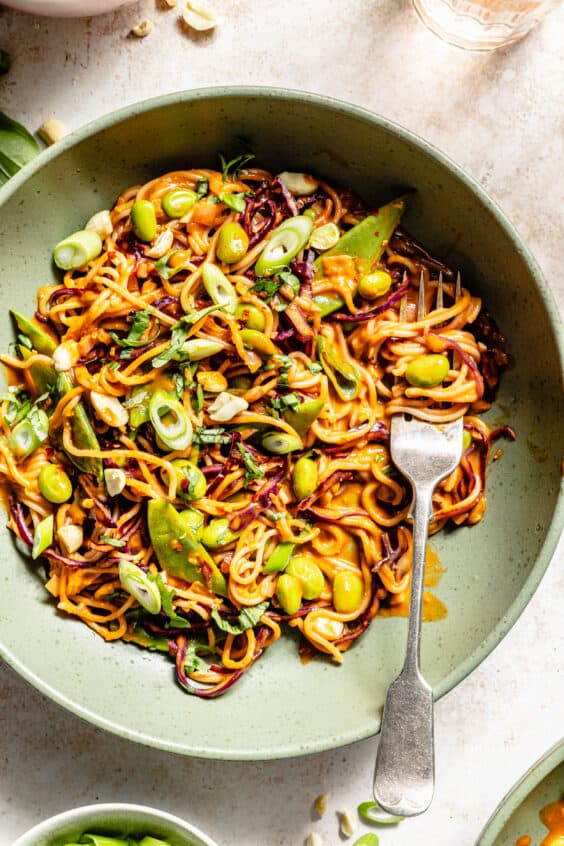Saucy Green Pasta with Calabrian Breadcrumbs
 My Saucy Green Pasta with Calabrian Breadcrumbs brings together everything you love about pesto and green goddess dressing into one…
My Saucy Green Pasta with Calabrian Breadcrumbs brings together everything you love about pesto and green goddess dressing into one…
The post Saucy Green Pasta with Calabrian Breadcrumbs appeared first on The Defined Dish.
 This Rainbow Chickpea Salad is a dream summer side. Packed with bright, fresh flavors it’s a crowd-pleaser and easy to…
This Rainbow Chickpea Salad is a dream summer side. Packed with bright, fresh flavors it’s a crowd-pleaser and easy to… These Gochujang Peanut Veggie Noodles will be ready in less than 30 minutes and bring all the flavor to your…
These Gochujang Peanut Veggie Noodles will be ready in less than 30 minutes and bring all the flavor to your…